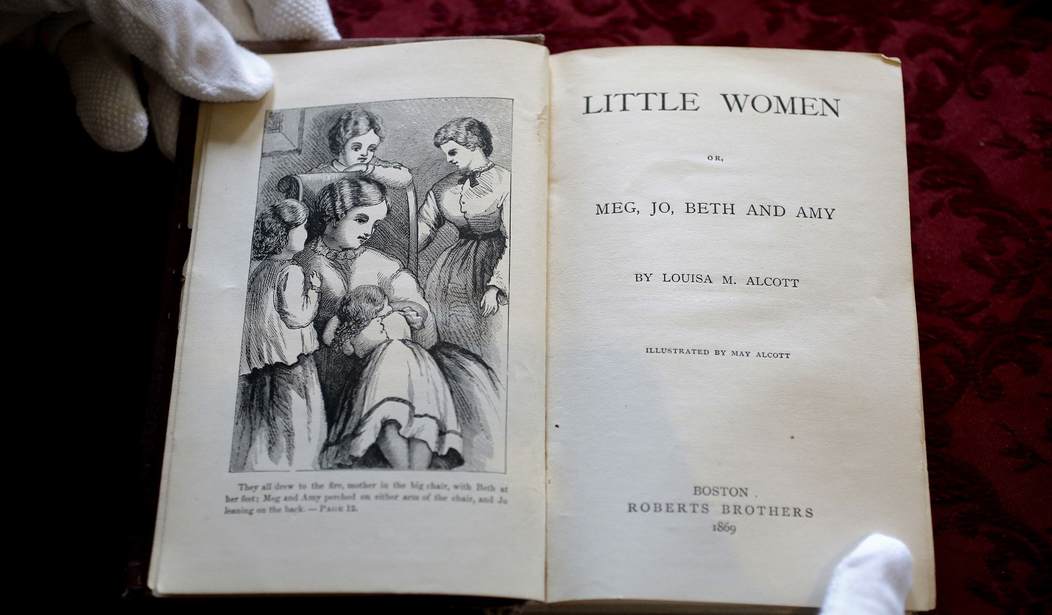This year, Matt covered how uproar ensued after a St. Joan of Arc was portrayed as “non-binary” in a theater production in London, England. This included referring to her by gender-neutral pronouns “they” and “them.” To clarify, Joan of Arc was a French woman who was burned at the stake in 1431 at age 19. She is a Catholic saint, and is a patron saint of France and of soldiers, particularly female soldiers.
“What's next? Napoleon played by a seven-foot actor, a male actor portraying Queen Elizabeth, or the Second Continental Congress comprised entirely of women?” Matt pointed out. But this month, a writer at The New York Times claimed that an author, who passed away over 100 years ago, whose work is influential among young girls, may have actually been “transgender” or “non-binary.”
A recent guest essay published in The New York Times claimed that Louisa May Alcott, author of bestselling the novel “Little Women,” which has sold an estimated 10 million copies, may have had "gender dysphoria" and identified with a gender that did not align with her biological sex. Alcott lived from 1832 to 1888, decades before the term “transgender” became part of the English language.
The piece, “Did the Mother of Young Adult Literature Identify as a Man?” by Peyton Thomas opens with an anecdote that Alcott “balked” when her editor asked her to write a book for girls. Reportedly, Alcott claimed she “never liked girls” except her sisters. Subsequently, the novel “Little Women” surrounded four sisters and “is now synonymous with girlhood.”
Despite this, Thomas wrote that Alcott felt “a profound affinity with manhood” and quoted Gregory Eiselein, a professor at Kansas State University, who said he is “certain” that the novelist “never fit a binary sex model.”
Recommended
According to Thomas, Alcott often went by “Lou,” “Lu,” or “Louy” rather than her given name, Louisa. She described herself to a friend as “a man of all work” and “a gentleman at large.” At one point, she apparently wrote in a letter that she had “a boy’s spirit.” On another occasion, Alcott reportedly said in an interview that “I am more than half-persuaded that I am a man’s soul, put by some freak of nature into a woman’s body.”
Because of all this, Thomas wrote “is it inappropriate – anachronistic at beast, misogynistic at worst – to describe Alcott as transgender?” At the end of the piece, Thomas refers to “Lou” with a male pronoun.
Predictably, Thomas received backlash over the piece, with many people pointing out that it was sexist to claim that Alcott, who is long dead, identified as a man simply because she did not conform to typical female traits during her time period.
It used to be we admired women who yearned to be all they could be and achieved success in a man's world that often selfishly and wrongly belittled women and their talents. Now we apparently have to say they thought they were *actually men*? https://t.co/BQuXEQijfg
— Jeryl Bier (@JerylBier) December 27, 2022
Alcott was rejecting the sexist stereotypes & socially-reinforced limitations synonymous with being female at the time—the same brand of sexiest stereotypes & socially-reinforced limitations that arise from suggesting that spirited women must be men. 🙄
— AJ Kay (@AJKayWriter) December 25, 2022
Way to reanimate the sexist stereotypes she lamented. 🙄
— AJ Kay (@AJKayWriter) December 25, 2022
This is incredibly sexist.
— Joshua Claybourn (@JoshuaClaybourn) December 25, 2022
This is so dumb … and sexist, but mostly dumb.
— Scott Morefield (@SKMorefield) December 25, 2022
Mark Hemingway pointed out that Thomas’ essay was an example of leftists trying to rewrite history to fit today’s narrative.
Rewriting history to be fanfic for sexual fetishes is like an entire academic and journalistic specialty now https://t.co/MOearkEaUg
— Mark Hemingway (@Heminator) December 26, 2022
Thomas, who identifies as “transgender,” is working on a contemporary version of “Little Women.” Thomas also hosts a podcast called “Jo’s Boys,” a podcast where they read through the novel chapter-by-chapter and “[pull] out queer and trans threads as we go.”

























